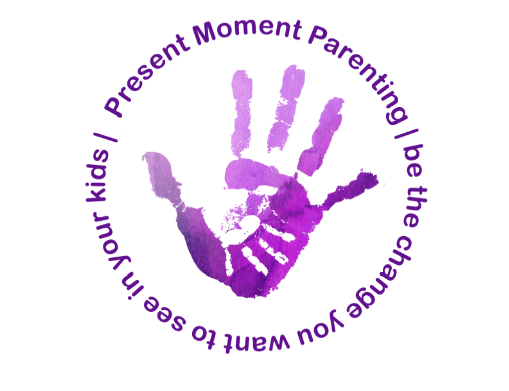
Stress has always been around - it really is a matter of perspective rather than actual circumstance - however I do think that children these days tend to have a more stressed perspective. They are pushed to excel; to "make it" in the fast paced world. They are pushed into more extra-murals and expected to do excessive amounts of homework. Children also tend to get less one-on-one time with their parents, something that is essential to their emotional well-being and sense of calmness and security.
So what can we do to protect our kids from becoming too stressed or from buckling under pressure?
So what can we do to protect our kids from becoming too stressed or from buckling under pressure?
Here I think we need to make a distinction between eustress and distress. Eustress, literally meaning "good stress", is where we feel positively challenged. We need some challenge in our lives to keep us growing and learning and to stay motivated and excited by life. Distress, on the other hand, is what most of us refer to when we speak of stress, and is the "bad stress", where we feel we have too much challenge and not enough support and that we are sinking.
Again, the distinction between the two is mostly a matter of perspective. In life we are always going to have both challenge and support, and if we focus purely on the challenges and don't look for the support (i.e. Looking at the negatives without seeing the positives) we will tend to feel overwhelmed and unable to cope. But there are always both, and if you can train yourself, and your children, to see the upsides whenever there is a down, then all stress becomes eustress and an opportunity for growth.
The most likely indicator as to whether a child will cope with stress or not would be how the parents handle stress. If parents model for and teach the children positive ways of handling stress and anxiety and keep an open channel of communication with their kids, these children will be much more likely to handle the inevitable challenges of life in a positive way. Parents who do not handle their stress well, who are more secretive and erratic in their behaviour are more likely to pass on the message to the children that life is stressful and there is no escape.
As I said before, stress is about your perception of events – there is no event or circumstance in life that is inherently stressful – stress is about the meaning that we apply to the situation and to ourselves – it is the internal dialogue that we have about what is going on and our ability to handle it. And this is learned. We learn patterns in the way that we think about the world from our parents. When we, as parents, learn positive ways to deal with life and challenges we tend to naturally pass those on to our children through our behaviour, our state and what we say.
Here are some basic tips to help you and your kids to live a more balanced life…
Be present with your kids. Make sure that every day you have some one-on-one time with them where you are fully present (switch off your phone and computer, close the door, get onto their level). Children who feel that the adults in their lives are there for them 100% have more resilience and are better able to cope with challenges. Your very presence and attention can help them to feel that everything is going to be ok.
Teach your children how to breathe properly. When we are stressed we tend to have very quick, shallow breaths. Taking long, deep, breaths (where the out-breath is twice as long as the in-breath) activates the parasympathetic nervous system (the one that tells our bodies that we are relaxed and safe) and is such a simple tool for handling stress that can be used anytime anywhere.
Teach your kids to look for the positives in the negatives. If you can find the upside to what looks like an only bad situation you can learn to turn any challenge into eustress rather than distress. No matter how bad the situation seems to be there is always an upside if you really look for it.
Teach your kids relaxation or meditation techniques. This can be as simple as lying down and tensing and then relaxing each group of muscles in the body, or imagining yourself inside a coloured bubble of light where you are completely safe and protected. There are so many wonderful, simple techniques that you can find with a quick Google search.
If they are anxious about something coming up (exams, a new school, moving etc) you can teach them to close their eyes for a minute and to imagine themselves flying out above their lives into the future – to after the successful completion of whatever it is they are anxious about. It's a great trick for getting the mind to focus on a positive outcome rather than always focusing on the potential negatives.
Make sure they are involved in some form of fun, regular, non-competitive exercise. Exercise is an incredible way of dealing with stress (unless it becomes a source of stress because it is not something you enjoy or is highly competitive). Find something that your child LOVES doing – this doesn't need to be a formal exercise – it could be skateboarding, dancing, swimming, riding their bikes, etc.
Most importantly, learn to deal with stress yourself. You cannot teach a child to deal with stress if you cannot do this yourself. Your example is what they will end up imitating, and if you have really poor coping skills the chances are that they will too. Find out how to deal with stress and implement your findings. If you are not coping on your own, give me a call or find another good coach who can help you to get on top of your stress so that you don't pass these negative patterns on to your children.
Again, the distinction between the two is mostly a matter of perspective. In life we are always going to have both challenge and support, and if we focus purely on the challenges and don't look for the support (i.e. Looking at the negatives without seeing the positives) we will tend to feel overwhelmed and unable to cope. But there are always both, and if you can train yourself, and your children, to see the upsides whenever there is a down, then all stress becomes eustress and an opportunity for growth.
The most likely indicator as to whether a child will cope with stress or not would be how the parents handle stress. If parents model for and teach the children positive ways of handling stress and anxiety and keep an open channel of communication with their kids, these children will be much more likely to handle the inevitable challenges of life in a positive way. Parents who do not handle their stress well, who are more secretive and erratic in their behaviour are more likely to pass on the message to the children that life is stressful and there is no escape.
As I said before, stress is about your perception of events – there is no event or circumstance in life that is inherently stressful – stress is about the meaning that we apply to the situation and to ourselves – it is the internal dialogue that we have about what is going on and our ability to handle it. And this is learned. We learn patterns in the way that we think about the world from our parents. When we, as parents, learn positive ways to deal with life and challenges we tend to naturally pass those on to our children through our behaviour, our state and what we say.
Here are some basic tips to help you and your kids to live a more balanced life…
Be present with your kids. Make sure that every day you have some one-on-one time with them where you are fully present (switch off your phone and computer, close the door, get onto their level). Children who feel that the adults in their lives are there for them 100% have more resilience and are better able to cope with challenges. Your very presence and attention can help them to feel that everything is going to be ok.
Teach your children how to breathe properly. When we are stressed we tend to have very quick, shallow breaths. Taking long, deep, breaths (where the out-breath is twice as long as the in-breath) activates the parasympathetic nervous system (the one that tells our bodies that we are relaxed and safe) and is such a simple tool for handling stress that can be used anytime anywhere.
Teach your kids to look for the positives in the negatives. If you can find the upside to what looks like an only bad situation you can learn to turn any challenge into eustress rather than distress. No matter how bad the situation seems to be there is always an upside if you really look for it.
Teach your kids relaxation or meditation techniques. This can be as simple as lying down and tensing and then relaxing each group of muscles in the body, or imagining yourself inside a coloured bubble of light where you are completely safe and protected. There are so many wonderful, simple techniques that you can find with a quick Google search.
If they are anxious about something coming up (exams, a new school, moving etc) you can teach them to close their eyes for a minute and to imagine themselves flying out above their lives into the future – to after the successful completion of whatever it is they are anxious about. It's a great trick for getting the mind to focus on a positive outcome rather than always focusing on the potential negatives.
Make sure they are involved in some form of fun, regular, non-competitive exercise. Exercise is an incredible way of dealing with stress (unless it becomes a source of stress because it is not something you enjoy or is highly competitive). Find something that your child LOVES doing – this doesn't need to be a formal exercise – it could be skateboarding, dancing, swimming, riding their bikes, etc.
Most importantly, learn to deal with stress yourself. You cannot teach a child to deal with stress if you cannot do this yourself. Your example is what they will end up imitating, and if you have really poor coping skills the chances are that they will too. Find out how to deal with stress and implement your findings. If you are not coping on your own, give me a call or find another good coach who can help you to get on top of your stress so that you don't pass these negative patterns on to your children.







 RSS Feed
RSS Feed